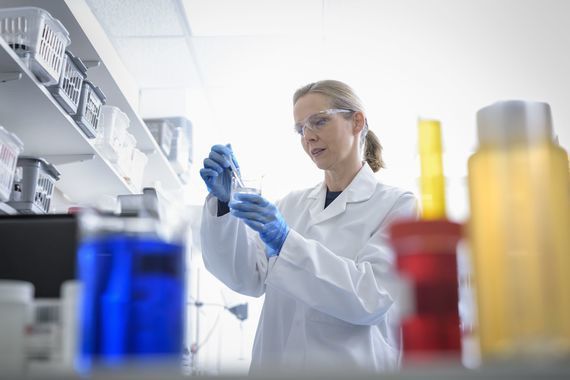The Irish Government is funding six innovative research projects at Trinity College to tackle the continuing COVID-19 crisis.
The research will help the Irish Government to better understand the current pandemic and help protect Irish communities from further devastation.
These projects will investigate the effects of COVID-19 on older communities and vulnerable groups, measure the effectiveness of government responses in Ireland and Northern Ireland, and explore how Ireland can ease current restrictions and if it can expect a second wave of the virus.
Additionally, the research will examine whether telehealth can be used to treat vulnerable groups like those suffering from Motor Neuron Disease (MND).
The Health Research Board and the Irish Research Council are funding the research through the COVID-19 Rapid Response initiative, which was established in March to fund groundbreaking research into the novel virus.
Professor Linda Doyle, Dean of Research at Trinity College, congratulated each research team upon receiving the government grants and said that the research would play a significant role in the fight against COVID-19.
"This funding program is an example of how vital research is to the health of our nation, and truly shows that research matters for all of us.
"The rapid response our researchers have shown to the current crisis is an example of the strength and depth of talent and expertise that is available in Ireland to address the challenges we face from COVID-19."
Dr. Nollaig Bourke and her research team will investigate what risk factors are associated with COVID-19 in older people.
Her team will investigate participants of the Irish Longitudinal Study on Ageing (TILDA) to examine the effects of COVID-19 on elderly patients.
Bourke said that older people were disproportionately affected by the virus, so her team wants to investigate who is getting sick from the virus and why. She said that her research could identify high-risk older patients who would be susceptible to severe symptoms of COVID-19.
Read more: New York GAA players to run 1000km for Sláinte 2020 hardship fund
Professor Catherine Darker, meanwhile, will head an investigation into government response to COVID-19 in Ireland and Northern Ireland and the spread of information and misinformation in both states about the virus.
Darker's research team will investigate social factors of the virus-like social distancing and cocooning in addition to behavioral factors like hygiene and cough etiquette and test their effectiveness.
Darker's research will inform government measures and messaging during potential future outbreaks of COVID-19.
Professor Orla Hardiman and her research team will explore whether Telehealth can be used to effectively treat MND and dementia patients. The team will examine a new telemedicine system to provide virtual support to patients with the conditions to monitor a patient's condition remotely.
Hardiman said that a number of vulnerable patients are now reluctant to go to the hospital or visit their local GP, which creates a high risk of further complications.
"Remote and accurate tracking of clinical symptoms, early recognition of new symptoms, and timely home-based visits are very important."
Professor Catherine Comiskey and her team will investigate the number of asymptomatic cases in Ireland in order to assess the risk of a second outbreak of the virus. Additionally, Comiskey's research will inform the Irish Government about when and how it can lift the current lockdown.
"Knowing how many people had COVID-19 and their ages will help policymakers make safer decisions on reopening our communities," she said.
Professor Mark Little and his team want to test the effects of the virus in patients with auto-immune diseases. Little wants to explore whether COVID-19 is more or less severe in immunosuppressed patients.
Little argues that certain immunosuppressive treatments could be effective against COVID-19 if the virus is less severe in immunosuppressed patients.
Read more: COVID-19 vaccine in Ireland could take a year and a half
Finally, Professor Rose-Anne Kenny and her team will examine the psychological effects of COVID-19 on people over the age of 70.
The research will investigate the impact of cocooning and social distancing on older people's mental and physical health.
Kennedy's research will additionally examine the immune response in elderly patients to help develop an appropriate vaccine in the future.
Read more: Dublin scientists develop Covid-19 virus killing robot




Comments